- Home
- Helen Forrester
Yes, Mama Page 2
Yes, Mama Read online
Page 2
Before Polly could aspire to a job as an indoor servant, she had, somehow, to acquire a reference from another lady. At first, Polly’s mother had suggested that Mrs Tibbs’ recommendation would be enough, but, through Fanny, Mrs Tibbs herself insisted that Polly must produce a written reference.
‘Aye, she’s right,’ Polly agreed. Then, trying to make an effort for herself, she added, ‘Now I’ve got a hat, I could go and see that ould Mrs Stanley, and ask ’er.’
Before her marriage, Polly had cleaned the doorsteps and the brass bells and letterboxes of a number of elegant houses in Mount Pleasant. For five years, she had donkey-stoned the front steps of a Mrs Stanley, an ancient crone who claimed that she had once danced with King George IV. Mrs Stanley lived with a white cat and an elderly married pair of servants.
With feelings akin to terror, Polly pulled the bell of the servants’ entrance of Mrs Stanley’s house. The same bent, bald manservant she remembered answered it. He did not recognize her, and asked, ‘And what do you want?’
She told him.
‘I’ll ask the wife,’ he told her, and shut the door in her face.
She was almost ready to give up and go home, when a little kitchen-maid opened it and said shyly, ‘You’re to coom in.’
She was led into a well-scrubbed kitchen where, on a bare, deal table, a meal was laid for four. Bending over to poke the roaring kitchen fire was an elderly woman-servant. A good smell of roasting meat permeated the room; it made Polly’s mouth water.
The old woman straightened up. She wore a white, frilled cap tied under her chin and a grey uniform with a long, starched apron. Poker still in hand, she turned and said, ‘’Allo, Polly. What’s to do? Didn’t expect to see you again, after you was married.’
Polly explained her need for a reference. ‘To say I’m honest, like.’ She omitted to tell the woman that she had been widowed, because she thought she would start to cry again if she did so.
The older woman looked at her doubtfully. ‘Well, I’ll ask for yez,’ she said slowly. ‘I doubt she’ll even know your face, though. Ye ’ardly ever saw ’er, did yer?’
‘Not much,’ agreed Polly humbly.
‘I’ll go up. Sit down there.’ She pointed to a wooden chair set by the back entrance. Polly obediently sat on it.
A bell suddenly bounced on its spring in a corner of the ceiling and ting-a-linged impatiently. The manservant put on his jacket and went to answer it. The little kitchen-maid stirred the contents of an iron pot on the fire and carefully put the lid back on. A young woman in a pink-striped, housemaid’s dress put her head round the door leading to the rest of the house, and shouted, ‘Mary Jane, the Mistress wants her bath water. Hurry up.’
The kitchen-maid put her ladle down on to an old plate in the hearth. A somnolent kitchen cat slunk from the other end of the hearth and quietly licked it clean. The girl took a large ewer from a hook and swung it under the oven tap at the side of the huge kitchen fire. Boiling water belched into it. She grinned at Polly, as she waited for the water jug to fill.
Polly smiled faintly. Jaysus! Was she going to have to wait for the ould girl to bath and dress?
Two and a half hours later, by the clock hanging on the kitchen wall, Madam completed her toilet. The servants came at different times to eat their midday meal at the kitchen table. They ignored Polly as being so low that she was beneath their notice.
The morning-room bell tinkled. The manservant wiped his lips on the back of his hand, put on his black jacket and went upstairs. A few minutes later, he returned and said gruffly to Polly, ‘Mistress’ll see you.’
Her chest aching, her throat parched, her heart beating wildly from fright, Polly followed the old man along a dark passage and up two flights of stairs equally Stygian. ‘You’re lucky,’ he piped. ‘Mistress don’t bother with the likes of you that often.’
Polly kept her head down and did not answer. Surreptitiously, under her shawl, she scratched a bug bite on her arm. She was so inured to vermin bites that they did not usually irritate. Her mother had, however, insisted that she wash herself all over in a bucket of cold water, scrubbing her yellowed skin with a rough piece of cloth. It had made her itch. After that, both of them had gone over the seams of her clothes to kill any lice or bugs that she might be carrying. ‘You can’t help your hair,’ her mother had said. ‘I haven’t got no money to buy paraffin to kill the nits in it.’
The old servant pushed open a green baize door and suddenly she was in a blaze of sunlight coming through the stained glass of the hall window.
Blinking against the light, she tiptoed after the servant across the hall rug to a white-enamelled door.
The servant knocked gently, paused and then entered the room, while Polly, terrified, quivered on the red Turkey doormat.
‘Come on in,’ the old man breathed irritably. ‘She’s waitin’.’ He shoved Polly forward and closed the door behind her.
Before she lowered her eyes, Polly caught a glimpse of an incredibly thin woman, her heavy white hair done up elaborately on the top of her head. She was waiting bolt upright in an armless chair and was staring out of the window at the garden. Nestling in the folds of her grey silk skirt was a huge white cat. Heavily ringed fingers tickled the cat’s ears.
Polly stood silently looking at the richly patterned carpet, and waited to be noticed.
‘Well?’ the old lady barked.
Polly swallowed and then curtsied. She wanted to run away and cry, cry herself to death, if possible. ‘I’m Polly, Ma’am,’ she quavered, ‘wot used to scrub your steps and do the brass …’
‘I know who you are,’ snapped the voice. ‘What do you want?’
Polly glanced up at her erstwhile employer. The lady was still staring out of the window; the cat stared at Polly. ‘Well, Ma’am, I – er …’
‘For Heaven’s sake, speak up, girl.’
‘Yes, ’m, I’m wantin’ to get a job as wet-nurse to a lady called Mrs Woodman in Upper Canning Street – and I was wonderin’, Ma’am, if you would write a letter to her about me.’
‘A reference?’
‘Yes, Ma’am.’
‘A wet-nurse, humph? Have you been in trouble? I don’t believe in helping servants in trouble.’
‘Oh, no, Ma’am.’ Polly was shocked out of her fear. ‘I were a married woman.’ Her voice faltered, and for the first time, Mrs Stanley turned to look at her.
‘Lost the child?’
‘Yes, Ma’am. He was born a bit early – ’cos me ’oosband were killed – in the Albert Dock, Ma’am. It must’ve bin the shock.’ She gulped back her tears, and then went on. ‘’E fell in an ’old, Ma’am.’
‘How very careless of him.’
‘Yes, ’m.’ Tears coursed down the girl’s cheeks.
Madam stared at her thoughtfully. Everybody lost children; she had lost all hers. Still, it was depressing. And doubtless Mrs Woodman, whom she had met once or twice at parties, would be glad of a wet-nurse. She understood that, nowadays, they were difficult to obtain.
‘Have you been in service before?’
‘Yes, Ma’am. I were a tweenie when I were ten, ’elping the ’ousemaid empty the slops, and like. The Missus died … and then I found I could earn more specializin’ in doin’ doorsteps.’
‘Humph.’ Mrs Stanley’s lips curled. The lower classes were remarkable in their ability to survive.
‘And for how long did you – er – clean my doorsteps?’
‘Five year, Ma’am.’
‘Why don’t you go back to it?’
Polly heaved a sigh. She was so tired that she thought her legs would give under her. ‘Me Mam wants me to improve meself,’ she burst out, with sudden inspiration.
‘Very commendable. And do you go to Church, Polly?’
Polly had never been to Church in her life. And only once to an open air Wesleyan meeting with her father. She knew, however, what the answer must be. ‘Oh, yes, Ma’am. I go to St Nick’s – I mean, St Nicholas’s.’
‘Humph. Protestant, then?’
‘Yes, Ma’am,’ replied Polly promptly, wondering suddenly what she really was, since her mother was a Roman Catholic and her father a Wesleyan.
‘Mrs Woodman is a Protestant, I believe.’
Polly did not care if Mrs Woodman worshipped golden idols, like the blackie seamen who walked the streets of Liverpool in silent, single files. All she wanted was three meals a day, to lessen the pain in her stomach, and a baby to suckle, to ease the pain in her chest; even the thought of suckling made her breasts fill and she could feel the milk trickling down to her waist.
Mrs Stanley smiled thinly. She did not care for Mrs Woodman, a fluttering widgeon of a woman with an upstart husband who dabbled in many commercial enterprises in Liverpool. Distinctly lower-class. She thought it might be amusing to send them a wet-nurse who was probably lice-ridden.
‘Bring my desk from over there and put it on this table beside me.’ Mrs Stanley gestured towards the far wall.
Polly did not know what a desk looked like and glanced, bewildered, towards the furniture indicated by the delicate white hand.
‘There, you fool – that – er – sloping box.’
Polly carefully lifted a pair of crystal inkwells and a matching candlestick off the desk and laid the desk on the table indicated. She then replaced the inkwells and candlestick.
Irritated, Mrs Stanley moved inkwells and candlestick to the back of the desk, so that she could open the lid and extract a sheet of paper, a goose-quill pen and a piece of sealing wax. In exquisite copperplate, she wrote To Whom It May Concern that Polly Ford was honest, industrious and had worked for her as a charwoman for five years. She was desirous of improving herself, and Mrs Stanley felt that she would give satisfaction.
She sanded the paper to dry the ink. She then took a phosphorus match from the candlestick, struck it and lit the candle. She held the stick of sealing wax to the flame and allowed a small drop to fall upon the letter and seal it closed. Into the molten wax, she pressed a ring from her forefinger, to imprint her own seal.
‘There.’ She turned in her chair and handed the note to Polly. With a bit of luck, that would give the odious Woodmans a fair amount of trouble.
‘Oh, thank you, Ma’am.’ Polly’s voice was full of genuine gratitude as she made a deep curtsey.
Mrs Stanley gave a stiff nod of acknowledgement, and then ordered, ‘Put the desk back on to the far table.’
‘Yes, ’m.’ Polly did as she was bidden, being particularly careful not to spill the red and black inks from their crystal containers. She then backed to the door, bobbing little curtsies as she went.
‘James will show you out. Pull the bell by the fireplace.’
The only thing by the fireplace which could be pulled was a long piece of embroidered canvas hanging from the ceiling. Polly hoped for the best and pulled it. Then she stood with hands neatly clasped in front of her and examined the pattern on the carpet. She was stupid, she told herself. She should have realized that she would have to be escorted out of the house in case she stole something. Not that I would, she told herself crossly.
The old manservant arrived with commendable promptness. ‘Yes, Ma’am?’
‘Show this woman out – by the servants’ entrance.’
‘Yes, Ma’am. Of course, Ma’am.’ He twisted his toothless mouth into a tight knot. As if he would ever show a member of the lower classes out of the front door. After fifty years of service, Madam ought to know that, he thought irritably.
II
Sent upstairs by Rosie, Polly stood with head meekly bowed and examined the blue and white Chinese carpet in Elizabeth. Woodman’s room, while her new mistress looked her over for a second time.
The young woman seemed healthy enough; and with a reference from the high-and-mighty Mrs Stanley and a personal recommendation from her cook-housekeeper, Mrs Tibbs, she should be satisfactory. Yet, Elizabeth smelled a rat. Mrs Stanley was notorious for her perverted sense of humour. A leftover from the wilder days of King George IV and King William IV, the old devil was capable of all kinds of japes and capers.
As she peered in the candlelight at the humbly bent head, a much sharper pain shot through her and she cried out. Mrs Macdonald came to the bedside immediately. She picked up the rolling-pin from the bedside table and handed it to the sufferer. ‘There, there, Ma’am. Hold on to this.’
Elizabeth clutched at the pin and gritted her teeth, as she waited for the next pang. She felt tired already, worn out from worrying over the coming child’s existence. She was petrified at the thought of the outburst which might occur from Humphrey when he actually saw the baby.
But if she employed this Polly Ford, the child could stay in the old nurseries on the top floor for months, and as far as Humphrey was concerned, out of sight might be out of mind. And she herself would be freed from the boredom of feeding the baby. She could go out and fulfil her social obligations, be free to spend afternoons with darling Andrew, as before, though they would have to be much more careful.
She let another spasm go over, managing not to cry out. Then she said to the midwife, ‘Mrs Macdonald, tell Mrs Tibbs to see that this woman is bathed, her head rubbed with paraffin, and her present clothing wrapped up tightly and sent to her home. Mrs Tibbs should have her uniform ready by now.’
‘Yes, Ma’am. I’ll ring for Rosie.’
Polly kept her head down. This was much better than she had expected. Both she and her mother had been worried about getting her a uniform, fearing that the pedlar might not give them credit. Now the clothes were to be given to her. If she had dared, she would have sighed with relief.
Elizabeth knew from sad experience that vermin could come into a house in a servant’s trunk. She took no chances and always provided uniforms.
Polly endured without comment the humiliating complaints of her fellow servants, as a tin bath was lugged up to the windowless box room which would be her bedroom. Loquacious Fanny hauled two ewers of hot water and one of cold up the endless stairs from the basement kitchen, together with a bottle of paraffin, a bar of laundry soap, a piece of flannel and a worn bath towel. ‘Mind you don’t make no splashes,’ she warned Polly.
Polly had never had a bath in her life; she had simply rubbed herself cursorily with a bit of cloth wrung out in cold water. Now, Fanny laid an old copy of The Times on the floor and said, ‘Take off all yer clothes and put ’em on this. Mrs Tibbs’ll get next door’s gardener’s boy to walk down with ’em to yer ma’s.’
Polly looked at the girl appalled. Take off everything?
As if she could read her mind, Fanny said, with a grin, ‘Everythin’, ’cept yer stockin’s and boots – you’re to keep them.’
‘Well, you go away, Miss, while I does it,’ snapped Polly defiantly. Even Patrick had never seen her completely naked.
At the thought of Patrick, tears welled. Fanny saw them, and said sympathetically, ‘Don’t take on so. They did this to me when I coom. Fussy, the Mistress is – wash all of you every day, she allus says.’ She glanced up again at Polly, still standing uncertainly by the bath. ‘These days, I fancy a bath meself now and then – takes the aches out of yez. I’ll bet she’ll make you scrub your dairies every day.’ She nodded her head like a disapproving old woman. ‘Proper finick, she is.’
While she waited for Fanny to leave the room, Polly sat down and unlaced her boots. One of the bootlaces broke and she looked at it ruefully, wondering where she would get a halfpenny from to buy a new one. ‘What’s the Master like?’ she inquired carefully – her mother had warned her long ago, when she had been a ten-year-old tweenie in a big house, to keep out of the way of the men of the house.
‘Himself? Och, you don’t have to worry about him. He’s got a fancy woman downtown. Maisie – she’s the parlour-maid – says the woman keeps ’im exhausted!’ Fanny chortled and looked wickedly at Polly. Then she said more soberly, ‘They do say as once he got a maid in trouble and the Mistress sent her packing. Nowad
ays, he don’t even notice you’re there, though. He’s got a lousy temper, though. Just keep out of his way of an evening when he’s drunk.’
Polly digested this advice, and then, as Fanny picked up her empty ewer and moved towards the door, she asked, ‘What part of town do you come from?’
Fanny laughed. ‘I dunno, for sure. I got an auntie wot lives in Shaw’s Alley, but I coom ’ere from the Workie. I were born in there – and bloody glad I was to get out of it. At least the Mistress don’t beat you. It were me auntie that got on to you.’
‘Is your Mam still in the Workhouse?’
‘Not her. She died when I was only an itty-bitty kid. The Workie Gaffer hit her one day for something she said – and she lay down and I remember she were cold.’
Polly did not bother to ask her where her father was. In her experience, fathers often remained unknown. She sighed and said, ‘It must’ve bin proper hard for yez.’
Fanny’s eyes twinkled. ‘I wouldn’t give a dead farthin’ to go through it again,’ she replied forcefully. Swinging her empty ewer, she turned and plodded down the stairs to the basement.
Polly quickly stripped off her blouse, skirt and stockings. She put a cautious toe into the steaming water and then stepped into it. It felt comfortable, so she carefully lowered herself into it and reached for the soap lying on the floor. She took the hairpins out of her plaits and loosened her hair. She found that holding the hot flannel to her breasts eased the ache in them and she was able to expel some of her milk. It would be a day or two, she realized, before the baby would be able to suck, and, in the meantime, she must keep the milk coming.
After she had dried herself, she kneeled down by the bath and uncorked the bottle of paraffin. Holding her breath because of its smell, she rubbed it liberally into her damp hair, until it dripped into the bath. Then, using a fine-toothed comb which her husband, Patrick, had given her as a present, she combed the long, damp locks until she reckoned she had all the lice out; the paraffin would kill the nits, so, if she were lucky, she would be free of them.
Two full-skirted, ankle-length, cotton dresses with petticoats to go under them had been provided. In Polly’s eyes, the dresses were beautiful, far nicer than anything she had ever worn before; they had narrow, blue and white stripes. There were three large white aprons to wear over them and three white cotton bonnets to pin over her hair. To go out-of-doors, there was a navy-blue jacket, and a navy coif to go over the white caps.

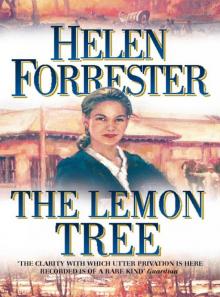 The Lemon Tree
The Lemon Tree Thursday's Child
Thursday's Child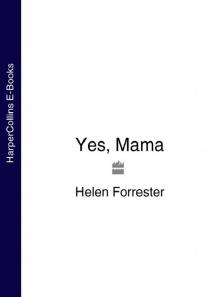 Yes, Mama
Yes, Mama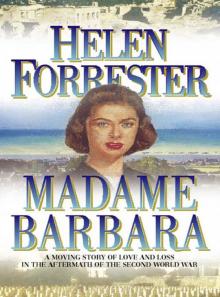 Madame Barbara
Madame Barbara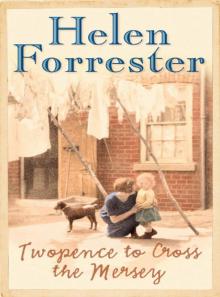 Twopence to Cross the Mersey
Twopence to Cross the Mersey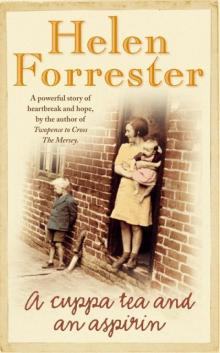 A Cuppa Tea and an Aspirin
A Cuppa Tea and an Aspirin The Moneylenders of Shahpur
The Moneylenders of Shahpur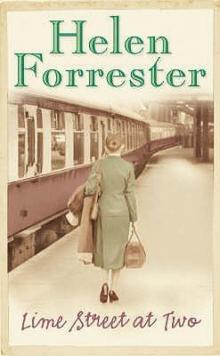 Lime Street at Two
Lime Street at Two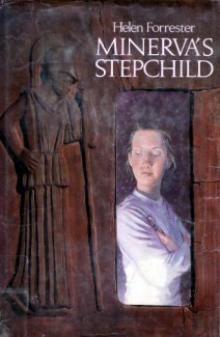 Minerva's Stepchild
Minerva's Stepchild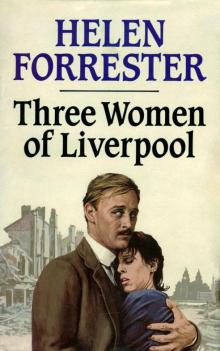 Three Women of Liverpool
Three Women of Liverpool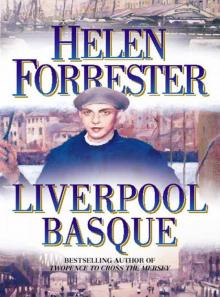 The Liverpool Basque
The Liverpool Basque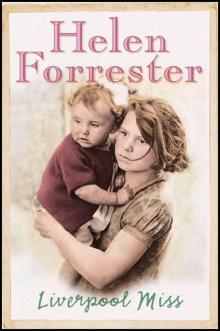 Liverpool Miss
Liverpool Miss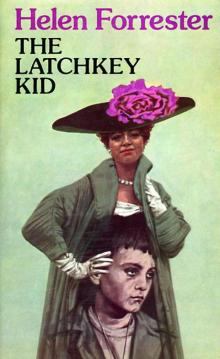 The Latchkey Kid
The Latchkey Kid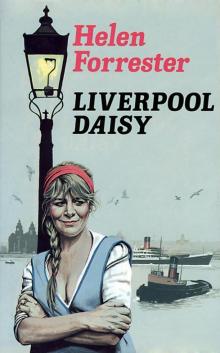 Liverpool Daisy
Liverpool Daisy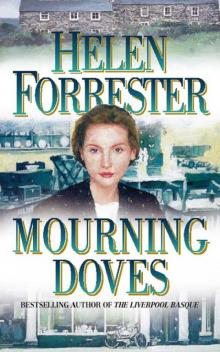 Mourning Doves
Mourning Doves